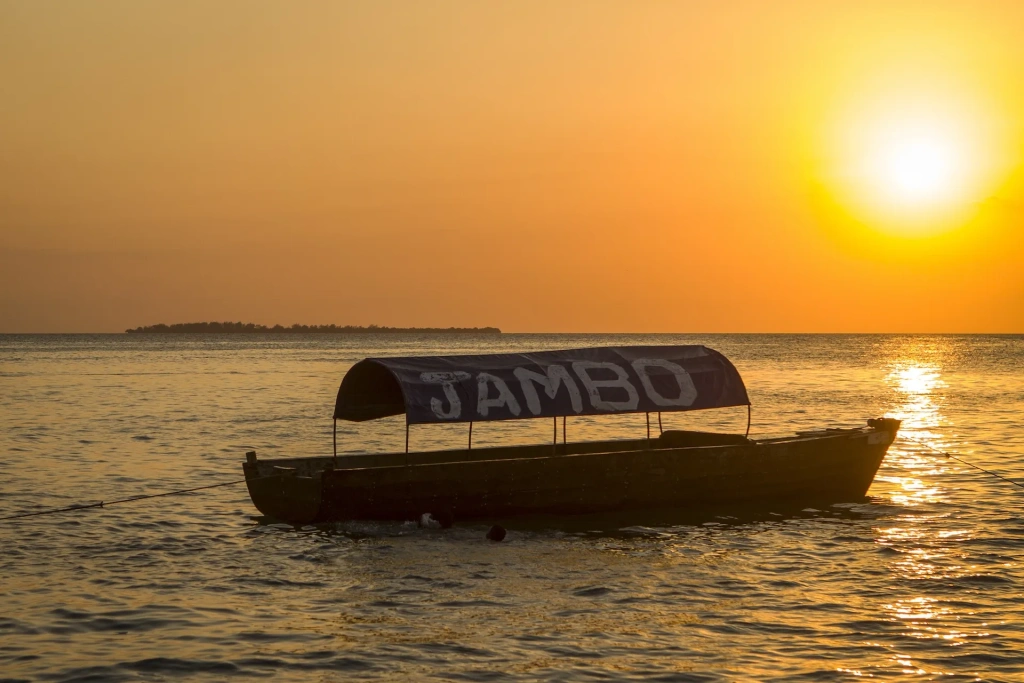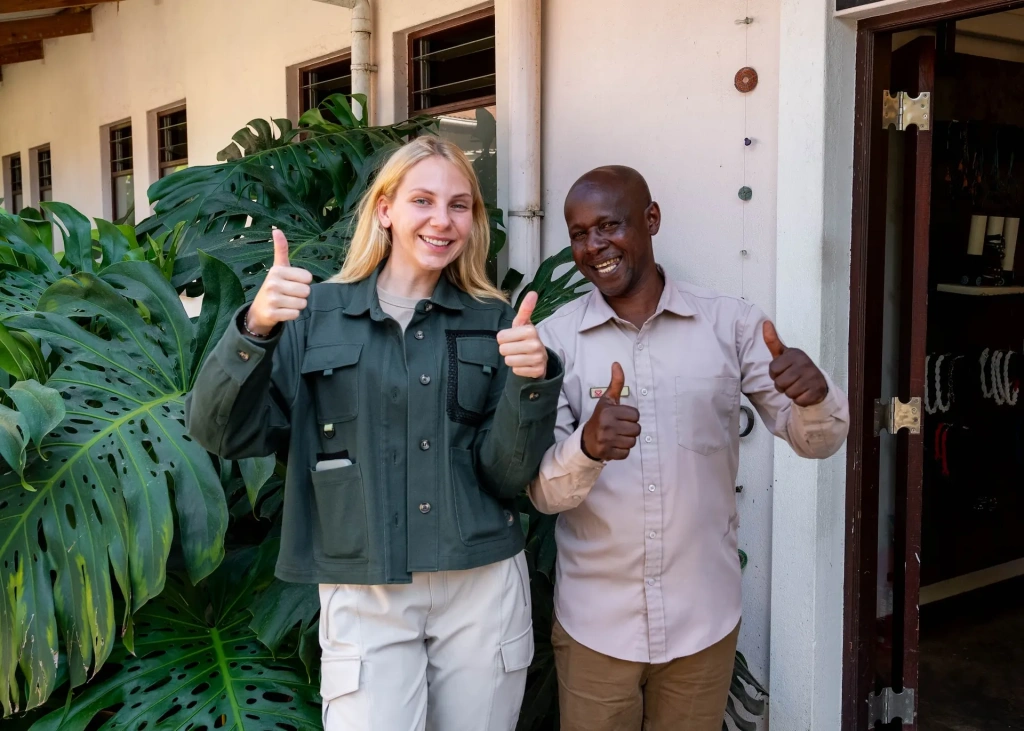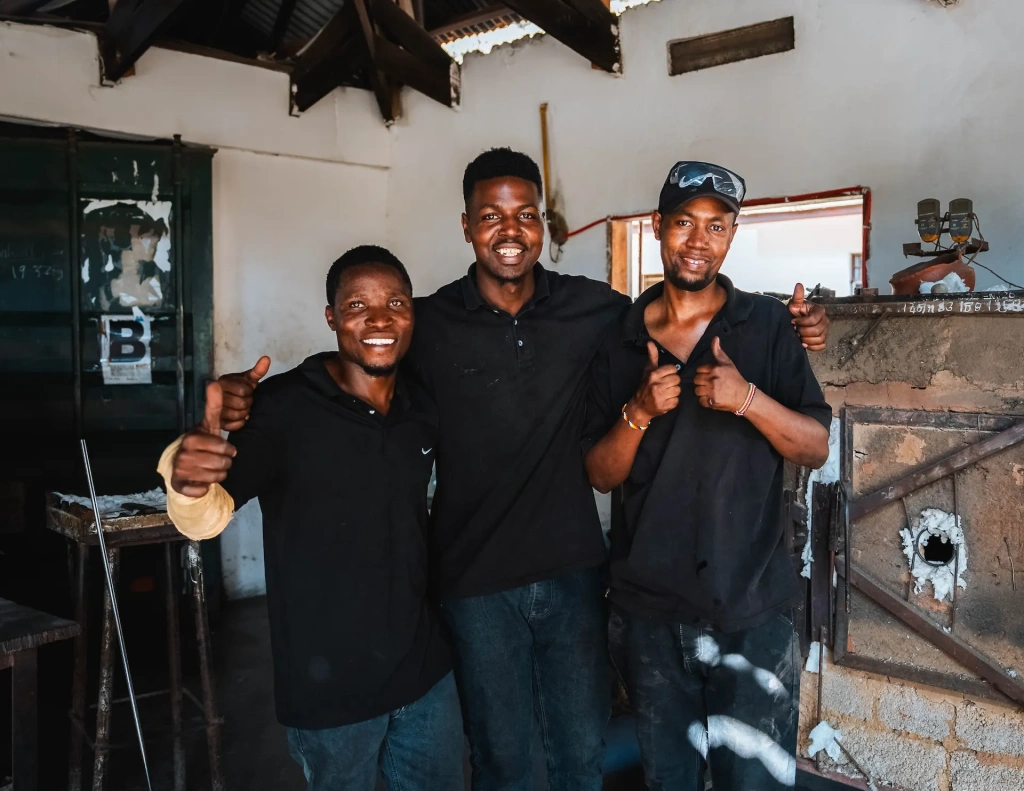What does the Swahili word "jambo" mean? Why is it so popular among travelers in Tanzania and Kenya? Do locals use it, and are there meanings not everyone knows? What's the popular song "Jambo Bwana" about? Find all the answers in this article.
What does “jambo” mean?
The word "jambo" is a greeting in the , meaning "hello." The closest equivalent is the English word "hello," used respectfully, especially upon first meeting. In Swahili, there's no distinction between formal and informal "you," so by default, it can be considered formal.
The word "jambo" is used to greet travelers in East Africa. It's so widespread that Tanzanians and Kenyans working in tourism are sure you know it. If someone greets you with "jambo," respond with the same word.
The exact etymological meaning of ‘jambo’ is ‘matter’ or ‘thing,’ similar to how we say ‘how are things?’ in English. Essentially, it's asking, "How are you?" Responding with "jambo" can be interpreted as "All is well" or "I'm fine."
Jambo Bwana meaning
In Tanzania or Kenya, you're sure to hear the song "Jambo Bwana." It might even be performed live for you at some hotels during your safari tour. If you're climbing Kilimanjaro, porters in the camps will sing a Kilimanjaro version of the song to encourage you during the ascent.
The song "Jambo Bwana" is sung to foreign guests. It was first recorded by the Kenyan group Them Mushrooms, who entertained guests in hotels in 1982. Since then, it has become so popular that it's turned into the tourist anthem of the East African coast.
You can memorize the words to sing along; the lyrics are very simple. An approximate translation is:
“Hello, hello, sir
How’s it going? Very well!
Welcome, dear guests
In our Kenya, there are no worries.”
In Tanzania, they change the country's name, and on Kilimanjaro, they sing "Kilimanjaro" instead of "Kenya yetu." In some places, they might add their own variations.
The word "bwana" translates to "sir" as a respectful address. Historically, it was used to refer to white slave traders and later to all white men. Today, ‘bwana’ is used to address important people or elders respectfully, although it may carry a sarcastic tone in some contexts. This word is used only for men.
"Jambo," "mambo," and other greetings in Swahili
Do Kenyans and Tanzanians use the word "jambo" among themselves? Yes, but in more complex forms. "Jambo" is a simplified version for foreigners.
"Jambo" — advanced level
Word formation in Swahili is structured so that words are built up from the front, and prefixes change depending on whether the singular or plural form is intended. Let’s look at some examples of how "jambo" can be used among local Swahili speakers.
If you don't want to delve deeper, skip ahead to "mambo" and other Swahili greetings.
- Hujambo? — "How are you?" (one person asks another)
- Sijambo! — "I'm fine!" (the person replies)
- Hamjambo? — "How are you all?" (asked to multiple people)
- Hatujambo! — "We're all fine" (someone replies on behalf of the group)
When discussing someone not present (third person):
- Hajambo? — "How is he/she?"
- Hajambo! — "He/she is fine."
For multiple people:
- Hawajambo? — "How are they?"
- Hawajambo! — "They are fine."
Mambo meaning
More often, Tanzanians and Kenyans greet each other with "mambo," which means the same as "jambo" but is less formal. It's usually used by younger people and can be considered slang. Responses include "poa," "safi," and "freshi."
- Mambo? — "What's up?"
- Poa! — "Cool!" or "All good!"
Other greetings in Swahili
It's inappropriate to say "mambo" to elders. To greet older or senior individuals, Swahili has a special form that conveys respect for age and experience.
Another common greeting is "habari," meaning "news" and used like "What's new?" This greeting and its response appear in the song "Jambo Bwana."
Other possible replies: salama ("all is peaceful"), safi ("excellent").
East Africans also often greet each other with "vipi," which means "how?" Responses are the same as for "mambo": "poa," "safi," "freshi."
- Vipi? — "How's it going?"
- Safi! — "Great!"
There are other greetings like "Niaje?", "Uko poa?", "Sema?". In Tanzania, people love to chat when they meet, so there are many standard greetings and polite questions. Knowing them all isn't necessary.
However, learning a few popular words and phrases in Swahili will be helpful. Tanzanians are delighted when foreigners know even a little of their language.
All content on Altezza Travel is created with expert insights and thorough research, in line with our Editorial Policy.
Want to know more about Tanzania adventures?
Get in touch with our team! We've explored all the top destinations across Tanzania. Our Kilimanjaro-based adventure consultants are ready to share tips and help you plan your unforgettable journey.



















No, the "shaka" gesture came from Hawaii. The meaning of “jambo” and the shaka sign have some similarities in meaning, but they are not connected.
Alina, it's simple.
If someone says ""jambo"" to you, reply with ""jambo.""
If someone says ""mambo,"" reply with ""poa.""
The difference between ""jambo"" and ""mambo"" is subtle. ""Mambo"" is a more of a young person and casual greeting, while ""jambo"" is suitable for everyone. We look forward to seeing you in Tanzania!